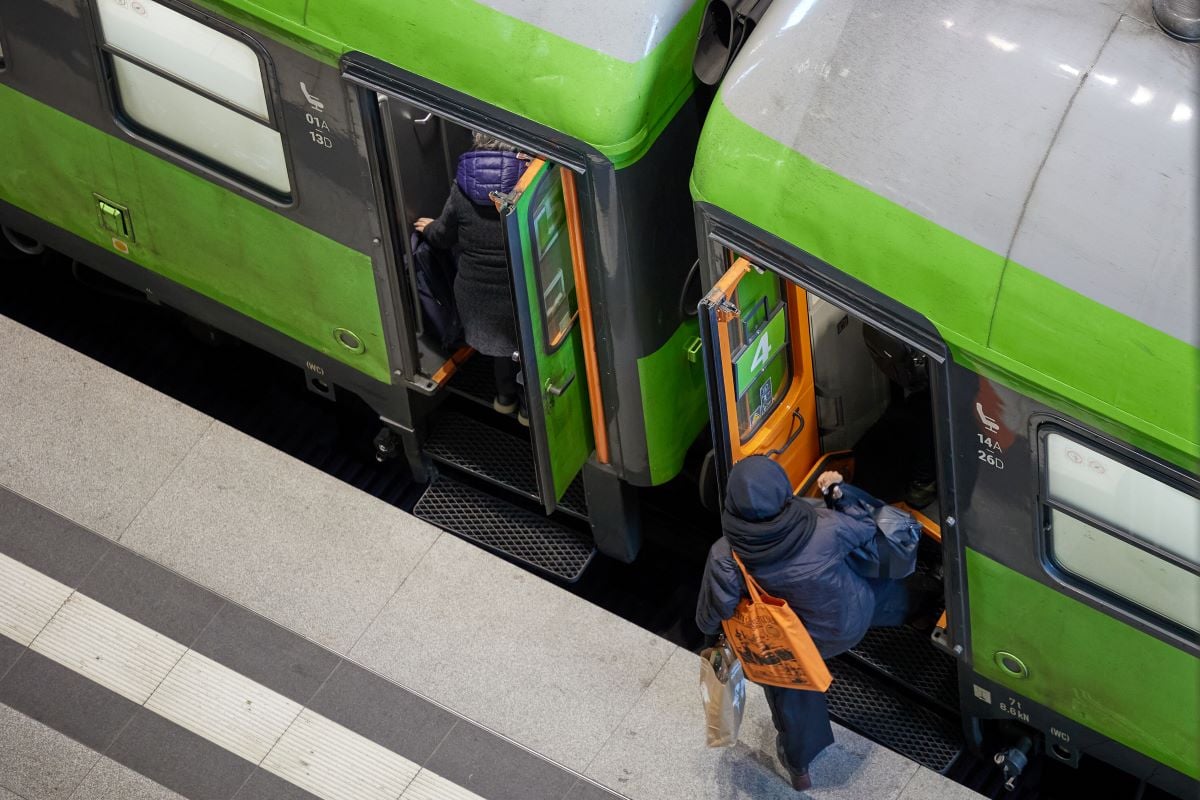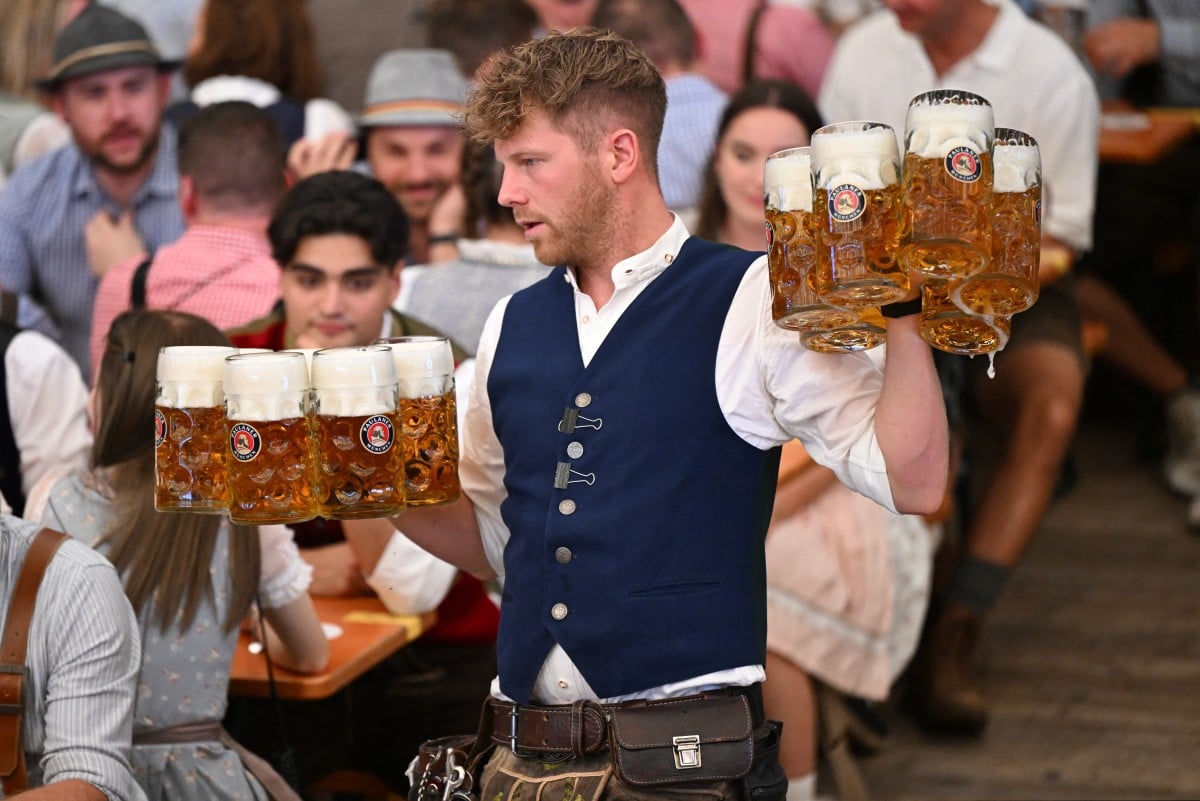Wednesday's top story: Two bills tightening migration policy to be presented to the cabinet
Federal Interior Minister Alexander Dobrindt (CSU) will bring two bills before the Federal Cabinet today - one will scrap family reunification for a particular group of refugees, and the other will end the ability to naturalise as German after three years for highly integrated people.
Both of which come as the new minister's first bills toward the conservative-led government's aim to tighten Germany's immigration policy, and make the country less attractive of a destination for migrants.
Since August 2018, 1,000 people per month have entered the country as relatives of people with this protection status, according to government figures reported by DPA. In comparison, a total of 229,751 people applied for asylum in Germany for the first time last year.
"We have to significantly reduce the pull factors to Germany," Dobrindt told Bild in justifying the two bills, adding, "This also shows that migration policy has changed."
The Expert Council on Integration and Migration, has spoken out in favour of scrapping the so-called "turbo naturalisations", according to a report on the Deutschlandfunk radio station, noting that fast-track citizenship was possible before the right of permanent residence.
But the chairman of the council was critical of the move to limit family reunification, adding that it may be possible under the constitution but that the effects on families should be considered.
Both bills are expected to be passed by the Federal Cabinet. Then they will also need to be passed by the Bundestag.
READ ALSO: Germany to end three-year 'turbo track' for citizenship
Germany to celebrate 'Christi Himmelfahrt' on Thursday
Thursday, May 29th is the Christian holiday of Ascension Day, called Christi Himmelfahrt in Germany.
It's a national holiday, meaning most regularly employed workers have the day off, and most businesses will be closed.
READ ALSO: What's open and closed in Germany on Ascension Day?
The day is also known as Father's Day (Vatertag) or Men's Day (Männertag), and outside of church, the day is often celebrated by hiking or biking in nature with friends. Some men do so with a wagon full of beers in tow.
Flixtrain to expand its fleet of long-distance trains in Germany
Flixtrain, Deutsche Bahn's only significant competitor in long-distance rail travel, has ordered approximately 30 new express trains from the Spanish manufacturer Talgo, with an option for 35 more.
The new trains are expected to reach speeds of up to 230 kilometres per hour and have barrier-free boarding. It remains unclear when they will be delivered.

Dirk Flege, managing director of the Pro-Rail Alliance welcomed the announcement, saying it meant that “passengers can look forward to service improvements in the coming years."
Flixtrain is part of the Munich-based travel platform Flix, best known for its green long-distance buses. Sixty-five new trains would increase its train fleet almost fivefold and potentially allow it to challenge Deutsche Bahn’s near monopoly on long-distance rail travel.
The deal with Talgo (and Siemens, which will provide the locomotives) is thought to be worth up to €2.4 billion.
READ ALSO: Why booking international train tickets in Germany is set to get easier
Berlin announces its plan to bid for Olympic Games
Berlin+ – a joint bid involving Berlin, Brandenburg, Mecklenburg-Vorpommern, Sachsen, and Schleswig-Holstein – unveiled details of its bid to host the Summer Olympics and Paralympics at the capital's Olympic Stadium yesterday.
At the presentation, Berlin's mayor Wegner spoke of a “huge opportunity for sport, Berlin and Germany”.
Preliminary plans suggest that the Olympic Village could be built at Messe Berlin, beach volleyball games held at the Brandenburg Gate, and rugby games held at the Jahn-Sportpark.
It remains unclear whether Berlin will bid for the 2036, 2040 or 2044 Games.
Berlin's bid for the 2000 Games, Leipzig's bid for 2012, and Hamburg's in 2024 all ended in disappointment, partly as a result of public opposition.
This time, a “NOlympia Berlin” initiative has already been formed to campaign against the Games being held in the capital.
North Rhine-Westphalia, Hamburg, and Munich have also expressed interest in submitting bids. Interested cities or regions have until the end of this month to submit their proposals.
The last time the Olympic Games were held in Berlin was 1936. The games then came during a tense, politically charged atmosphere, just two years after Adolf Hitler came to power.
Beer prices at the Oktoberfest to rise again
The cost of groceries and going out continues to rise in Germany, though at a less alarming rate. From a high of 9 percent in 2023, the rate of inflation fell to 2.4 percent in 2024, with forecasts suggesting it will be even lower in 2025 (at 2 percent).
This year, a litre of beer at Munich's Oktoberfest will cost between €14.50 and €15.80 – around 3.5 percent more than last year.

Non-alcoholic drinks are also set to rise, with a litre of table water costing €10.95 on average.
The price of beer varies slightly from tent to tent at the Oktoberfest.
READ ALSO: 'Beer is cheap and everywhere' - How Germany's drinking culture surprises foreigners
Merz to meet Zelensky in Berlin
German Chancellor Friedrich Merz will meet with Ukrainian President Volodymyr Zelensky in Berlin on Wednesday, a government spokesman said.
Zelensky's visit will focus on "German support for Ukraine and efforts to secure a ceasefire" with Russia to end more than three years of war, spokesman Stefan Kornelius said in a statement. Zelensky will also meet with German President Frank-Walter Steinmeier in the afternoon.
A number of streets surrounding Tiergarten will remain closed from 6 a.m. until 10 p.m. during the visit.
With Reporting by AFP, DPA and Paul Krantz.

Comments